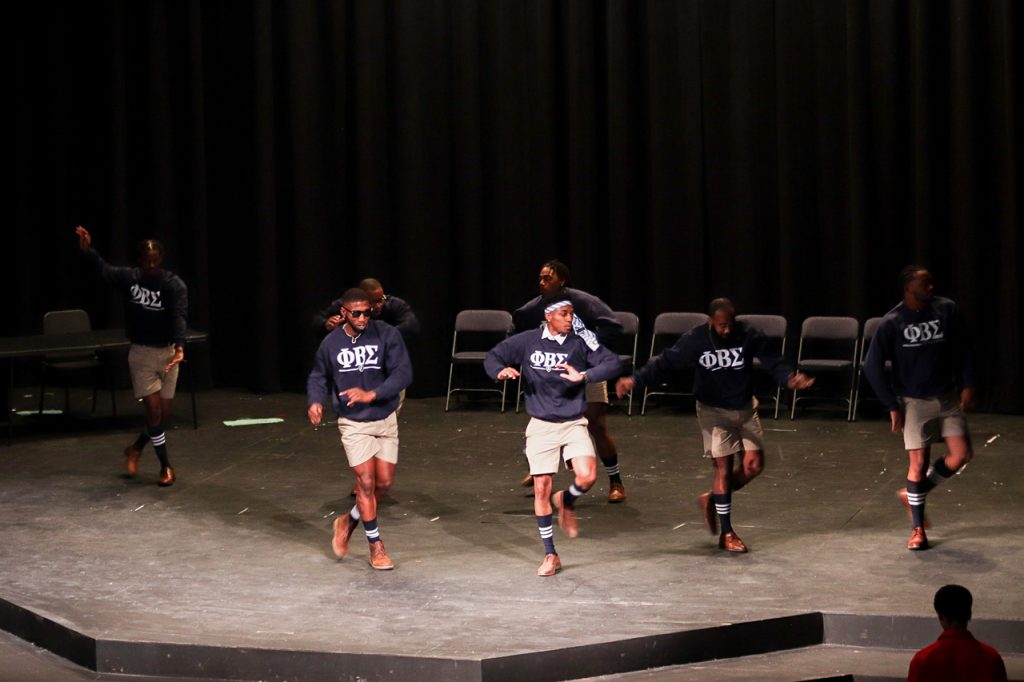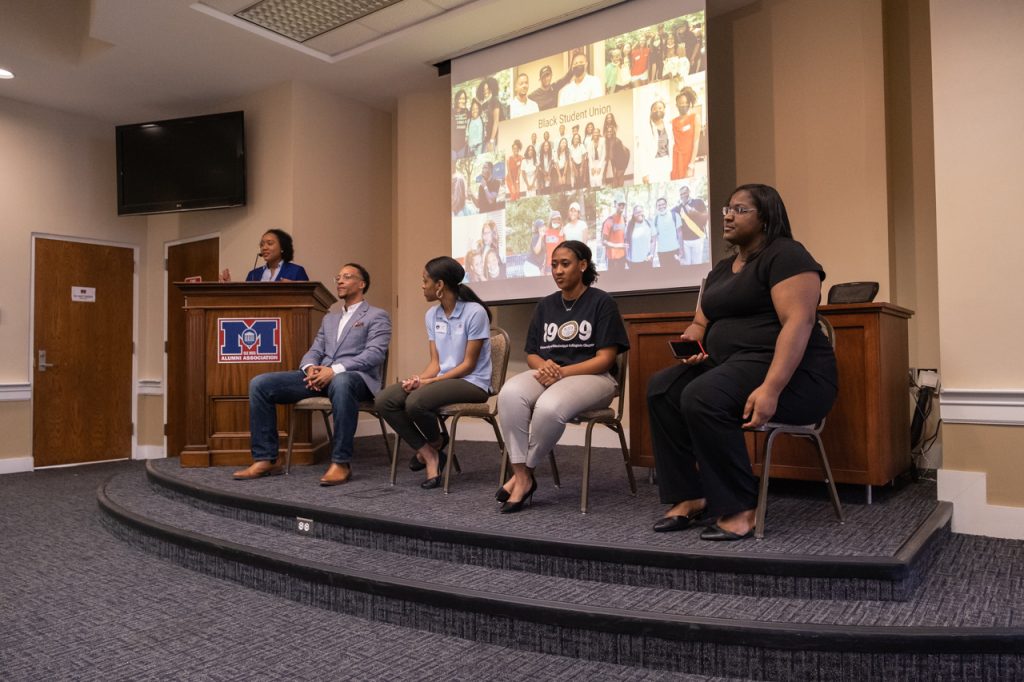Ole Miss Black alumni gathered for “A Different Decade Panel Discussion” on Saturday to take a trip down memory lane and reminisce about their time at the university.

The panel included Jonalyn Moore Venton, class of 2010; Doyal Siddell, class of 1979; Bernard Lloyd, class of 1980; Tejuan Leland, class of 2008; Ivory Williams-Shelby, class of 1980 and Robert Walker, class of 1968. The discussion was moderated by Brenda Luckett, class of 1981.
Luckett started the discussion by asking panelists about the influential figures who came into their lives during their time at the university.
Although they accredited many faculty, staff and students, Donald Cole was named by every panelist as someone who had positively influenced them as students.
“Dr. Cole was our chancellor. Everybody else (above Cole) was messing up, but not Dr. Cole,” Moore Venson said jokingly. “Dr. Cole took care of us.”
Black people on the University of Mississippi campus, however, were far and few between. Leland recalled visiting the Ole Miss Golf Course, where people would point him out and call him Tiger Woods because of his skin color.
“It would be one thing if I hit the ball, and it landed 300 yards, and they said I looked like Tiger Woods,” he said.
Leland said he was not offended by the comments made, but it was during his time on the golf course that he realized what his experience at the university would be like, calling it a new experience for himself and white students.
The panelists discussed the good times they had as students at the university, but they also reminisced about the challenges they had.
A common theme throughout the afternoon was that although the university and Oxford was desegregated during the time many of the panelists attended, most of their experiences revolved around feeling accepted and safe because of other Black people at the university.
Moore Venton, a graduate of the communication sciences and disorders program, shared about a time one of her professors called her and other Black classmates out in front of the class while they were asking about notes they may have missed from a previous class. She also talked about how this professor refused to help them with anything in the class.
“We bonded together because we were all we had,” she said.
In a different decade and the same degree program, Luckett recalled a time when a professor told the Black students that the field they were going into was a “white man’s profession.” She failed the class six times, but she refused to give up.
“I felt like I was in a swamp,” when asked if she felt like she was on an isolated island at the university. “When I left, I left here running away. I wasn’t trying to come back and change nothing. I just wanted to get out of here.”
Luckett was not the only one who felt this way. Williams-Shelby, the first African American woman to earn a master’s degree in urban planning, had the same feeling, saying that as Black students, they were “in the city, but not of the city.”
“We came here with a focus to get out, and if we were going to change Ole Miss, we were not going to try to change it while we were here,” she said.
One thing all members echoed, however, was that they ultimately came back because they wanted to not only see the progress the university had made, but to also continue helping other Black students who decide to attend the university.
Williams-Shelby said she realizes the benefits that being a flagship university brings and hopes the university will continue to invest in students of color.
“I just want the flagship to engage, so it’s not over when we leave,” she said. “We need to make sure that that investment continues. That’s why I came back.”
When asked if they had any regrets about choosing to attend the University of Mississippi, the panelists said no. One overarching reason, in addition to paving the way for current Black students, was that the resources they found at the university allowed them to go back into other communities and bring positive change.
“Many of the people who were there during those days went back into the larger society and did some things that made it much better, not just for Black folk, but for whites as well,” Walker, the first Black mayor of Vicksburg, said.
Black students at the university today experience many benefits Black alumni did not have decades ago, but knowing they built a community for Black students that has persisted overtime is something they take pride in.
“It means seeing those who have come here after James Meredith and myself evolve. It means being able to rub shoulders with distinguished folk,” Sidell said with tears in his eyes. “It means legacy building, and I’m beyond blessed in that regard.”















